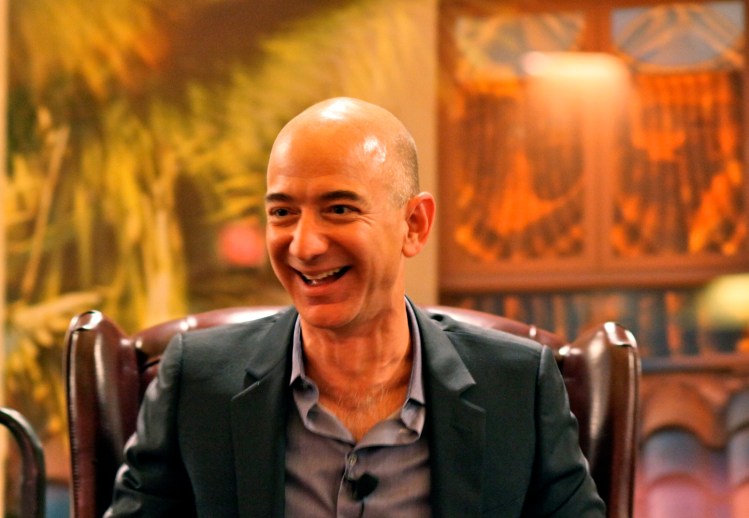Amazon’s proposed $13.7 billion purchase of Whole Foods Market caught stock market investors off guard. Their initial reaction — bidding up share prices of the two companies and selling off those of grocery chains — suggests a bleak future for an industry being reshaped by on-demand delivery.
Shares of Walmart were down 4.4 percent in mid-day trading after falling as much as 7 percent. Walmart, which has been trying to compete against Amazon by leveraging its retail stores as mini-distribution centers for deliveries of grocery and other goods, was holding up pretty well compared to its peers, however.
Target fell as much as 11 percent this morning on the news, while Kroger declined as much as 16 percent and SuperValu was down as much as 20 percent. Amazon, meanwhile, rose as much as 3 percent and Whole Foods as much as 29 percent.
Amazon has been making moves into grocery delivery for some time, but buying Whole Foods represents a bold step forward that will intensify competition in the market for delivering groceries and meals to busy consumers. The deal will either absorb or eliminate Instacart, a startup that had emerged as a key player, and potentially sideline Walmart’s early moves in the market.
June 5th: The AI Audit in NYC
Join us next week in NYC to engage with top executive leaders, delving into strategies for auditing AI models to ensure fairness, optimal performance, and ethical compliance across diverse organizations. Secure your attendance for this exclusive invite-only event.
In March, Walmart said online orders grew 63 percent in its most recent quarter, driven in part by free two-day shipping without membership fees. In other words, Prime without the Prime subscription. Walmart’s online business is headed by Marc Lore, who joined when the company bought Jet. Lore enjoys annoying Amazon, but this time he has poked a sleeping bear that may end up mauling the entire grocery sector.
“Amazon was already a competitor to grocery retailers. With the Whole Foods acquisition, Amazon is now of course an even more formidable competitor,” Nikhil Basu Trivedi, a principal at Shasta Ventures, told VentureBeat. “This puts a tremendous amount of pressure on grocery retailers to figure out their online and delivery strategies.”
Aside from Amazon and Walmart, most grocery retailers don’t have much of a delivery strategy beyond Instacart. Any company that had been thinking they have time to come up with and execute a strategy woke up today to discover that the timeline has suddenly accelerated with one simple move by Amazon.
That could lead to a scenario that department stores are familiar with: After overexpanding their retail stores in the face of a shift in revenue from offline to online, cutbacks, store closures, and share price declines become inevitable. In the past two years, Macy’s, JCPenney, and Nordstrom have seen their stocks decline by between 37 percent and 68 percent.
By late trading Friday, some of the grocery stocks had recovered ground, but they were still down between 5 percent and 15 percent on the day. The initial reaction may have been overdone by investors who, after years of doubting Jeff Bezos’ single-minded mission for the company, now seem to think he can do no wrong.
The Whole Foods deal carries its share of risk for Amazon. Another suitor could emerge to outbid Amazon and spur a bidding war. Whole Foods stock has lost two-thirds of its value since 2015 amid concerns its high prices — which run counter to Amazon’s core strategy — aren’t competitive against rivals like Sprouts.
The deal also is Amazon’s largest by a long shot – more than 10 times what Amazon paid for Zappos, its second-largest purchase to date. Amazon could improve Whole Foods’ bloated retail model with technology it’s experimenting with in its Amazon Go stores, but big deals like this typically come with big integration problems.
For now, the sentiment on Wall Street is that Amazon has steered its mighty bulldozer toward a sedentary grocery market that is changing because of online deliveries. And it’s never a good idea to stay still when you find yourself in Amazon’s path.


